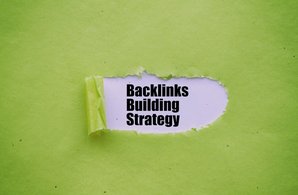SEO Mistakes of e-Commerce Websites You Must Avoid
- Home
- Knowledge Sharing
- SEO Mistakes of e-Commerce Websites You Must Avoid
You may not think that search engine optimization matters on e-commerce platforms. That can pave the way for some serious mistakes that prevent the platform from being effective as possible. While the approach is a little different, SEO does play an important role in the world of online marketplaces. Here are a few examples of the SEO mistakes that must be avoided if you want your e-commerce site to reach its full potential.
Using Duplicate Content
Perhaps you have the same product sold under multiple sub-brands. The product can be anything from running shoes to makeup. Since they are all identical, it's tempting to come up with one description and change nothing in the text other than the sub-brand itself. That may be the easy way out, but you end up giving the major search engines a reason to rank your pages for all those sub-brands lower. A better approach is to prepare different descriptions for each product. The unique content will rank higher and attract more customers.
Lots of Content Pages With Low Performance
Given that your site is all about selling products, pay closer attention to the ratio between content and products. Simply put, you may have too much content that serves no real purpose and it's adversely affecting the performance. Weed out pages that serve little purpose and tighten the content on other pages. Combine elements of content from several lower-performing pages on your site and the blog you use to direct readers to the site. You'll soon see them ranking higher and generating more interest from consumers.
Too Much or Too Little User-Generated Content
It's a reality that reviews do help your search engine rankings . You want to make sure there is always room for one more. Don't be overly concerned if every review does not come with a top rating and may have some negative comments. See that as an opportunity to learn what works for your customers and how their comments help improve the way you do business. Responding in a professional manner to those reviews will also attract the type of attention you want, even if some reviews are less than glowing.
As to quality, moderate the reviews. Note how several prominent commerce sites allow readers to sort reviews by star rating, most helpful, and other criteria. That makes the reviews more accessible and also aids in ranking.
Using Keywords Properly
If you choose to pepper all your pages with keywords or keyword phrases that are close but not quite on the mark, the search engines will rank them lower. Use keywords and phrases that are directly related and add something to the descriptions of each product and you can expect higher rankings.
Remember that more is not always better. Even if you have relevant keywords, repeating them too often on a single page will damage your ranking. If using the keyword one more time seems a little forced or out of place, rely on your instincts. All content should flow easily and follow a logical pattern. Too many keywords, even the right ones, will harm the flow and hurt the page rankings.
Haphazard Internal Linking
Does your linking from one product page to the next make sense? Are you following a plan or is the linking random? If you want to make it easier for customers to find what they want and have the pages ranking higher in search engine results, the linking must make sense and it must direct consumers to pages they want to see.
Pay close attention to link depth. Consumers should get where they want to go in a couple or three clicks at best. Limit and prioritize the links on each page so the most helpful suggestions are there for the readers. Don't overdo it by including too few links on each page. Use cross-linking between categories responsibly. If there is no obvious connection between them, don't do it.
Talk with an expert and have your e-commerce site professionally evaluated. If any of these issues exist, resolve them immediately. The site will soon be performing better than ever, both in terms of rankings and in the number of visitors to those pages.






